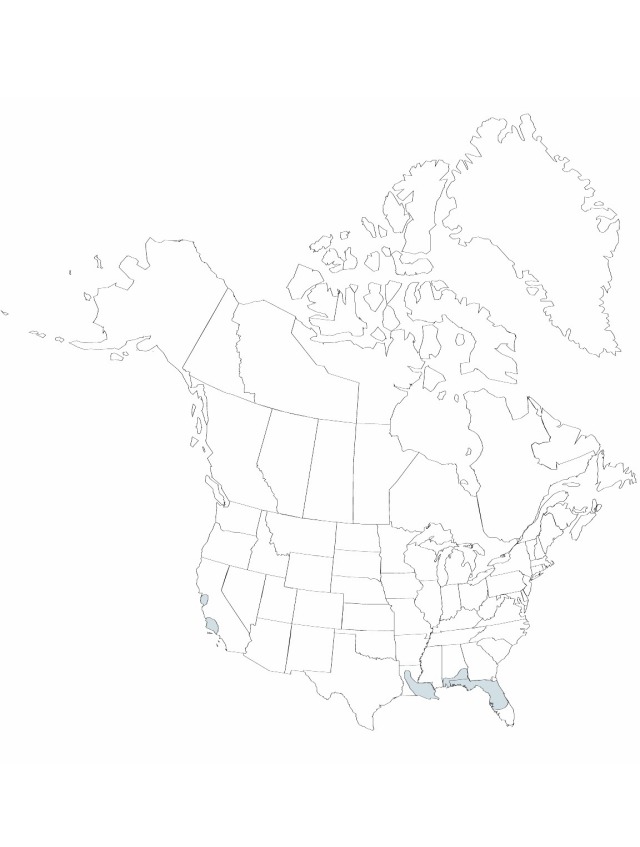Difference between revisions of "Tradescantia fluminensis"
Florae Fluminensis 140; plate vol. 3, 152. 1829.
FNA>Volume Importer |
imported>Volume Importer |
||
| (2 intermediate revisions by 2 users not shown) | |||
| Line 6: | Line 6: | ||
|place=140; plate vol. 3, 152. 1829 | |place=140; plate vol. 3, 152. 1829 | ||
|year=1829 | |year=1829 | ||
| + | }} | ||
| + | |special_status={{Treatment/ID/Special_status | ||
| + | |code=I | ||
| + | |label=Introduced | ||
}} | }} | ||
|basionyms= | |basionyms= | ||
| Line 22: | Line 26: | ||
|habitat=Woods, roadsides, and open areas, sometimes as weed | |habitat=Woods, roadsides, and open areas, sometimes as weed | ||
|distribution=Ala.;Calif.;Fla.;La.;introduced;native;South America (Brazil–Argentina);Africa (South Africa);Australia. | |distribution=Ala.;Calif.;Fla.;La.;introduced;native;South America (Brazil–Argentina);Africa (South Africa);Australia. | ||
| + | |introduced=true | ||
|discussion=<p>This species was recorded north to North Carolina (J. K. Small 1933), but I have not seen any supporting records from Georgia or North Carolina.</p> | |discussion=<p>This species was recorded north to North Carolina (J. K. Small 1933), but I have not seen any supporting records from Georgia or North Carolina.</p> | ||
|tables= | |tables= | ||
| Line 44: | Line 49: | ||
|publication title=Florae Fluminensis | |publication title=Florae Fluminensis | ||
|publication year=1829 | |publication year=1829 | ||
| − | |special status= | + | |special status=Introduced |
| − | |source xml=https:// | + | |source xml=https://bitbucket.org/aafc-mbb/fna-data-curation/src/2e0870ddd59836b60bcf96646a41e87ea5a5943a/coarse_grained_fna_xml/V22/V22_533.xml |
|genus=Tradescantia | |genus=Tradescantia | ||
|species=Tradescantia fluminensis | |species=Tradescantia fluminensis | ||
Latest revision as of 20:31, 5 November 2020
Herbs, decumbent, rooting at nodes. Leaves 2-ranked; blade lanceolate-elliptic to ovate-lanceolate, 2.5–5 × 1–2 cm (distal leaf blades wider or narrower than sheaths when sheaths opened, flattened), margins ciliolate, apex acute, glabrous. Inflorescences terminal, becoming leaf-opposed, sometimes axillary from distalmost leaf axil, 1–2 cyme pairs per stem; bracts mostly foliaceous, occasionally reduced. Flowers distinctly pedicillate; pedicels 1–1.5 cm, glandular-pilose; sepals 5–7 mm, midrib pilose with eglandular hairs; petals distinct, white, not clawed, 8–9 mm; stamens free; filaments white, densely bearded with white hairs.
Phenology: Flowering spring–fall.
Habitat: Woods, roadsides, and open areas, sometimes as weed
Distribution

Introduced; Ala., Calif., Fla., La., introduced, native, South America (Brazil–Argentina), Africa (South Africa), Australia.
Discussion
This species was recorded north to North Carolina (J. K. Small 1933), but I have not seen any supporting records from Georgia or North Carolina.
Selected References
None.